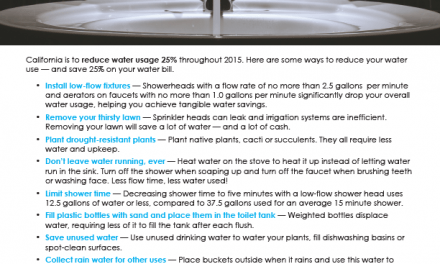Question: How can I reactivate my license after it has expired?
Answer: The process for reactivating an expired California Department of Real Estate (DRE) license is similar to that for becoming licensed for the first time, with a few key differences.
All California DRE agents and brokers are required to complete 45 hours of continuing education (CE) every four years to renew their license. [Calif. Business and Professions Code §10170.5]
Failing this, the agent or broker enters a two-year grace period following their license’s expiration date. During this time, the licensee may not practice. However, the renewal process for licensees in their grace period is the same as on-time filings, plus an additional 50% increase in the license renewal fee due to the DRE.
The renewal fee is:
- $245 for agents renewing on-time;
- $367 for agents renewing late;
- $300 for brokers renewing on time; and
- $450 for brokers renewing late. [Bus & P C §§10210, 10215; DRE Regs. §2716.1]
Related article:
Letter to the Editor: Explaining the DRE’s renewal grace period
Once the two-year grace period has elapsed, the license has fully expired and the ex-licensee may no longer practice or renew their license. At this point, the ex-licensee needs to retake the state exam and apply for their license as if doing so for the first time, but with a few differences.
Path to reinstatement
1. Print your statutory education certificates of completion.
These are the certificates earned for successfully completing the college-level courses required to qualify for the state exam. You do not need to complete this education again since the certificates do not expire.
Editor’s note — first tuesday students may view, download and print their certificates by logging in at firsttuesday.us.
If you plan to submit any college or university courses to satisfy the state exam qualification requirements, be sure to include a course description for each and request official transcripts from your college or university.
2. Get your fingerprints scanned at a Live Scan service provider.
Print out three copies of the Live Scan Service Request form (RE 237) and take them to a local Live Scan service provider. Hand all three copies to the Live Scan provider. They will keep one copy for their records and return the other two to you. Submit the second completed copy to the DRE with your application and keep the third copy for your records.
Editor’s note — You can find Live Scan service provider locations, contact information, fees and hours here.
3. Apply for the state exam and license.
Ex-agents need to fill out and sign the Agent Exam/License Application (RE 435). If you are paying the fees with a credit card, be sure to include the Credit Card Payment form (RE 909). Otherwise, the DRE also accepts money orders, cashiers’ checks and checks payable to “Department of Real Estate.”
The fee for the agent state exam is $60. The fee for the agent license is $245. These fees are included in the Exam/License Application form (RE 435).
Ex-brokers need to instead fill out and sign the Broker Exam/License Application (RE 436) and Employment Verification form (RE 226) or Equivalent Experience Verification form (RE 227). The same payment methods apply to broker applications.
Editor’s note — A prospective broker needs two years of real estate experience out of the last five to apply for the broker exam. Alternatively, they may provide unlicensed equivalent experience. Otherwise, they need to become an agent first.
The fee for the broker state exam is $95. The fee for the broker license is $300. These fees are included in the Broker Exam/License Application form (RE 436).
Alternatively, you can apply for the state exam and license separately. This takes longer, but costs less up-front. Instead of the combined Agent Exam/License Application form (RE 435), prospective agents can complete and mail in the Agent Exam Application form (RE 400A). After they pass the exam, the DRE will mail them an Agent License Application form (RE 202) to fill out and return.
Similarly, prospective brokers can apply and pay for the license and exam separately by completing and mailing in the Broker Exam Application form (RE 400B). After they pass the exam, the DRE will mail them a Broker License Application form (RE 200) to fill out and return.
Mail your certificates of completion, application, Live Scan fingerprint form, and payment to:
Department of Real Estate
Examination Section
PO Box 137001
Sacramento, CA 95813-7001
Allow three to six weeks for the DRE to process your application. You can check if your application is currently being processed by visiting the DRE’s website.
4. Schedule your state exam.
You will receive an email or letter from the DRE clearing you to take the state exam. You may choose a convenient exam date and location by logging in or registering with the DRE’s eLicensing system.
5. Prepare for the state exam.
Although you have passed once before, the DRE routinely changes the questions on the state exam, so it’s a good idea to review your statutory course materials and study preparatory materials specifically designed for the state exam.
Editor’s note — first tuesday offers a Prep Book, Online Video Crash Course, and a Live Crash Course to help you pass the state exam on the first try.
6. Take the state exam.
Take only your current government-issued photo ID into the testing room—nothing else. The agent state exam is 150 multiple-choice questions and 3 hours and 15 minutes long. You need to score at least 70% to pass.
The broker state exam is 200 multiple-choice questions and 5 hours long, completed in two sessions of equal length. You need to score at least 75% or better to pass.
You will receive your exam results immediately on completion. When you pass, you will receive your license from the DRE. You will still have the same DRE license number as before.
Ready to reactivate your license? You can find every form listed here and state exam preparatory material at firsttuesday.us.


















